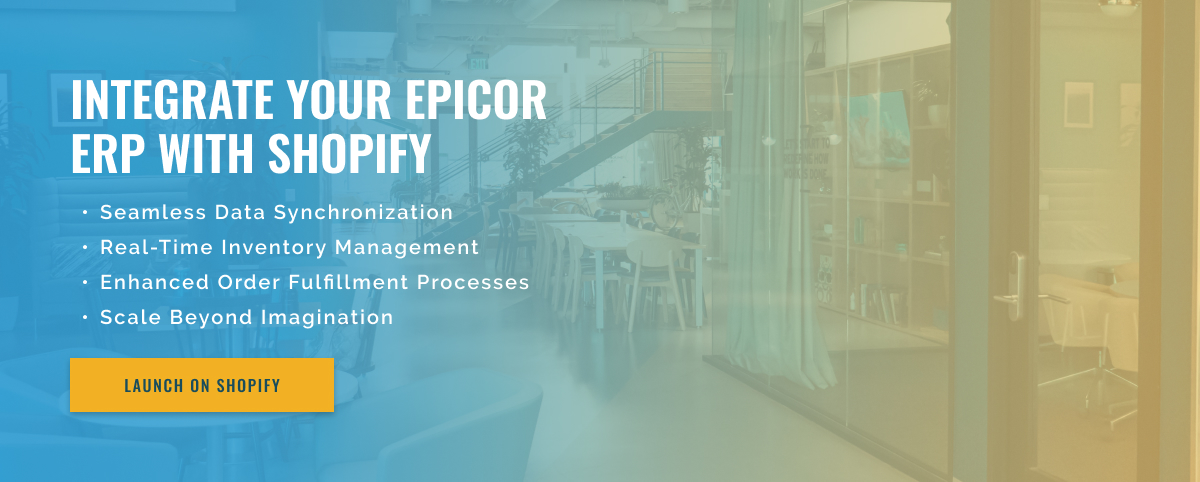3 minute read
Maximizing Data Sync Efficiency Between Shopify and Epicor
Are you a business owner who uses Shopify and Epicor for your daily operations? If so, you might be familiar with the difficulties involved in syncing large data sets between the two platforms. As your business grows, the amount of data that needs to be managed and shared between Shopify and Epicor can become overwhelming and time-consuming. In this blog post, we will discuss how to optimize the synchronization of large data sets between these two platforms.
First, you need to understand the importance of data synchronization between Shopify and Epicor. Inaccurate or outdated data can lead to errors, delays, and ultimately hinder the growth and success of your business. Not to mention, it can also lead to customer dissatisfaction and lost sales. Therefore, having a reliable and efficient data synchronization process is crucial.
One way to optimize the synchronization of large data sets is to use automation. Entering and transmitting data manually is not only time-consuming, but it is also prone to human error. By automating the data synchronization process, you can ensure that your data is accurate, consistent, and up-to-date. Not only will this save you time, but it will also improve the overall efficiency of your business.
Another way to streamline the synchronization of large data sets is to use a reliable integration tool. Both Shopify and Epicor have their own API connections, but using a third-party integration tool can make the synchronization process smoother and more efficient. These tools have built-in integrations that can seamlessly map data between the two platforms. They also offer real-time synchronization, meaning that any updates or changes made on one platform will be visible on the other almost immediately.
Additionally, it is important to periodically review and audit data to identify inaccuracies or errors. This allows you to quickly identify and fix any issues before they become a major problem. It is also recommended to have a backup system in place to ensure that your data is not lost in the event of any technical issues.
Finally, proper communication between your team members is crucial for data synchronization. Make sure everyone involved in data management is aware of the processes and protocols. This will ensure that everyone is on the same page and working towards the same goal.
In short, optimizing the synchronization of large data sets between Shopify and Epicor is critical to the success of your business. By using automation, integration tools, regular audits, and proper communication, you can ensure that your data is accurate, consistent, and up-to-date. Not only will this save you time and effort, but it will also contribute to your growth.

